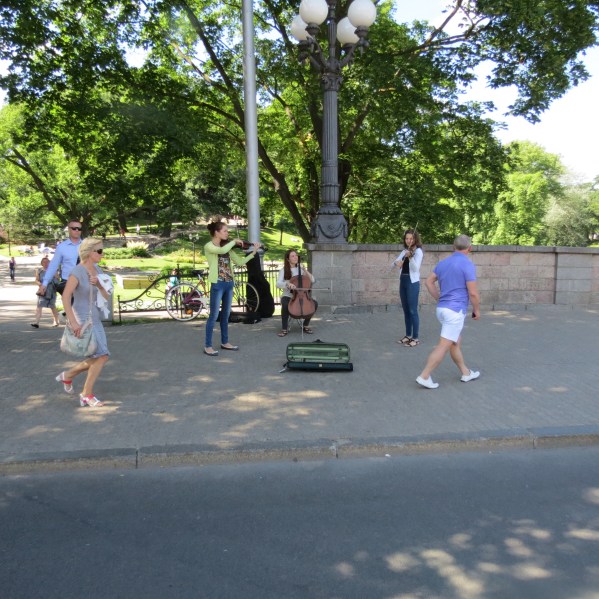It seems to me that the proliferation of know-it-alls (I have to include myself, unfortunately) in world culture is directly traceable to the rise of Wikipedia. There’s the obvious point that we can get information on almost anything at a click, but there’s also the less obvious inference from the fact that it’s crowd-sourced.
Anybody can add his/her two cents worth, or so the myth goes. That may have been true at the inception, but try it now, and see how far you get. That whole wisdom-of-crowds thing got a pretty good thrashing, as it became clear in the early days of Wikipedia that a lot of garbage was being put up. Eventually, the Wiki-editor was born, and now you need credentials to post, or even revise.
But the myth lives on, and the prevalent, if dubious, implication that one opinion is as good as the next. Politically attractive as such egalitarianism is, it just ain’t so. Ironically, everyone seems aware of this in regard to someone else’s opinions; we’ll have to look elsewhere for the root of our narcissism.
The other part of this illusion of expertise is the instant accessibility of information. This goes back to a very common misconception of long standing: the idea that an expert is nothing more than a repository of data. There have always been two stereotypes of genius. On one side is Einstein, standing before a blackboard filled with utterly incomprehensible symbols, and on the other is Ken Jennings, the record Jeopardy winner. To me, the two represent complementary aspects of genius: Jennings the large working memory, and Einstein the ability to see patterns and implications. Somehow, in the popular mind, this has gotten reduced to access to large databases. Presumably, in this view, Einstein simply knew the encryption key which made all those facts available to him.
A recent cartoon has a character saying, “I’ve outsourced my memory to Google.” Would that it were so simple. Having all that information accessible in your brain is inherently different from being able to look it up quickly on your computer. It is where the Jennings and Einstein stereotypes merge; you simply cannot see the pattern in a dataset if you can’t see the dataset all at once, and that requires a large working memory, inside your calabash, not on your desk. Worse yet, you can’t see the fallacy in any given proposition if you can’t quickly compare it to other propositions.
My students used to ask me how you can choose between two plausible, but contradictory propositions. Well, googling it will not help. You need to closely examine the underlying assumptions of the two ideas, as well as the implications. You also need to see how compatible they are with other propositions. This is possible without a good working memory, but very difficult.
Much easier to pick a side, and stick with it. You see this mirrored all the time in online “discussions.” A makes an assertion; B makes a counter-assertion. From that point, it’s either alternating re-assertions, or ad hominem, frequently both. There is an appalling scarcity of any relevance from one comment to another. If an adversary’s point is acknowledged at all, it is only as a prelude to insult. “You say x; you’re hopelessly naive.”
Internet knowledge is very broad, but shallow as a puddle, I’m afraid. Add to that the fact that most search engines will give you what the algorithm says you want, and online genius can be summed up in one word:
Fool.























